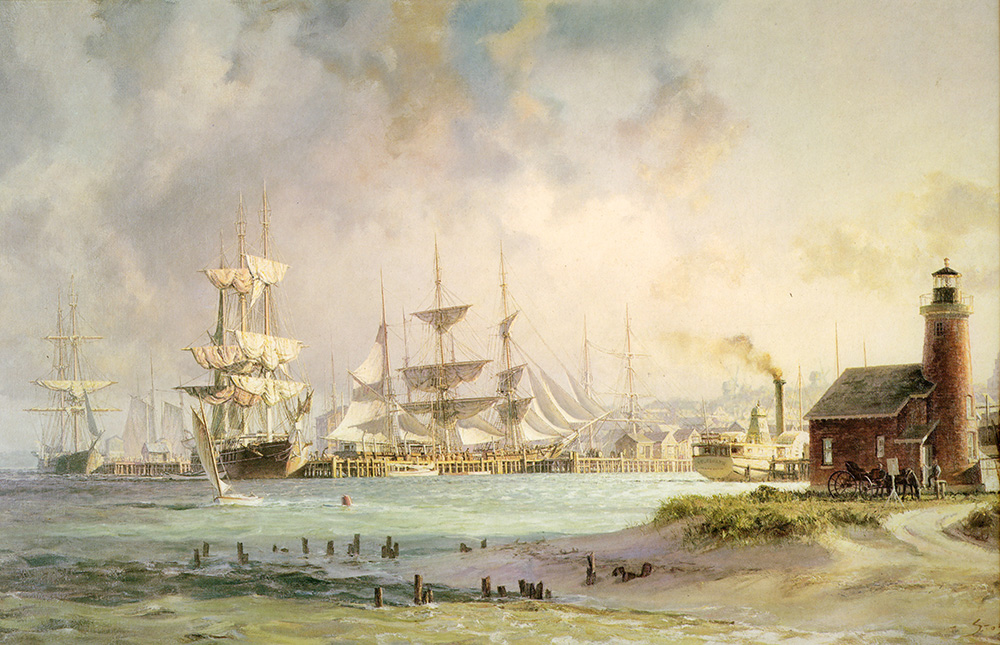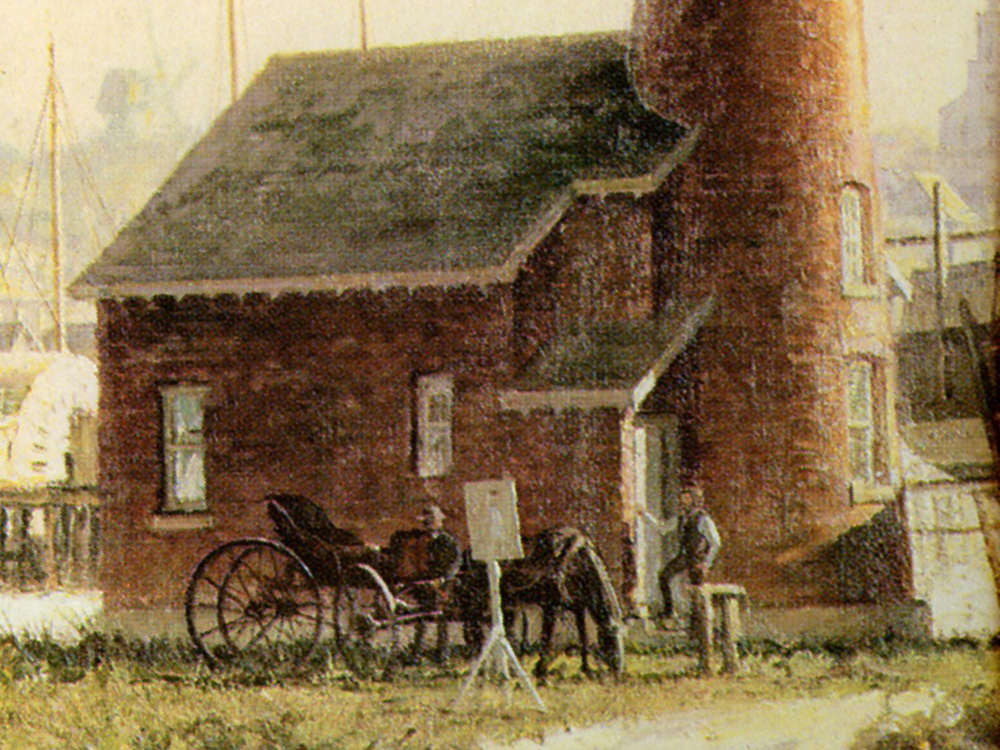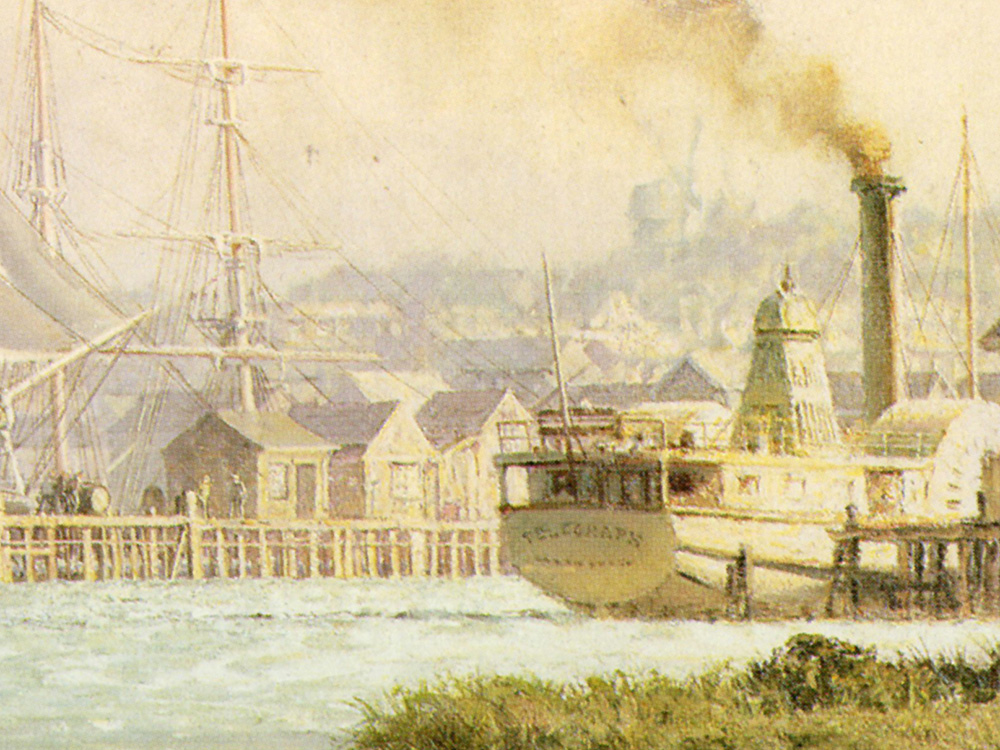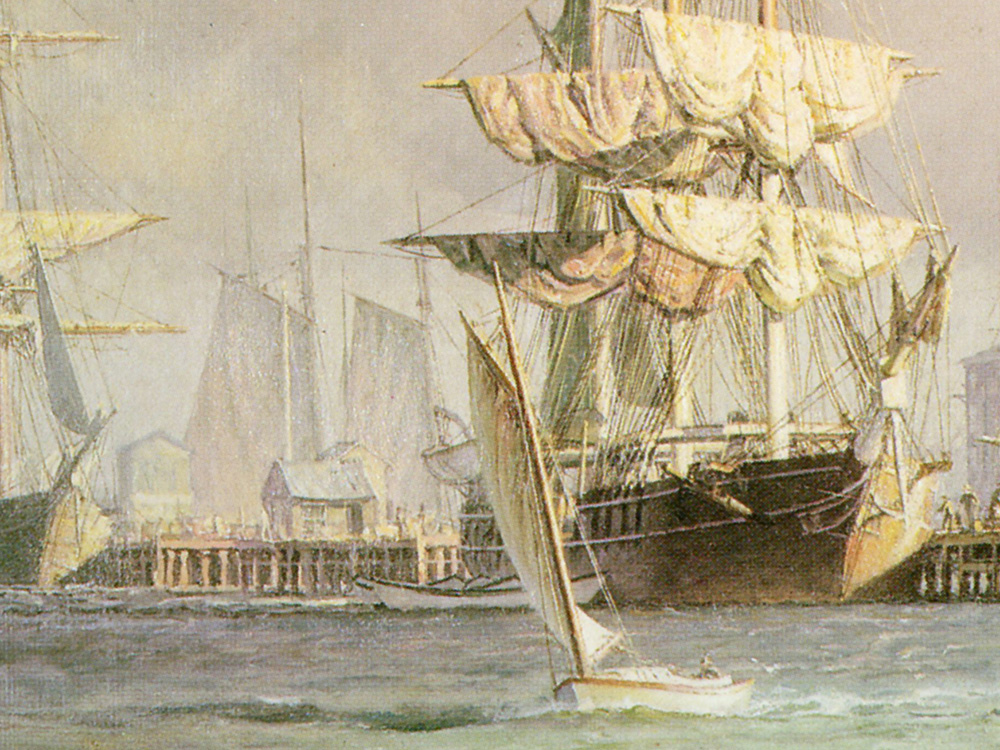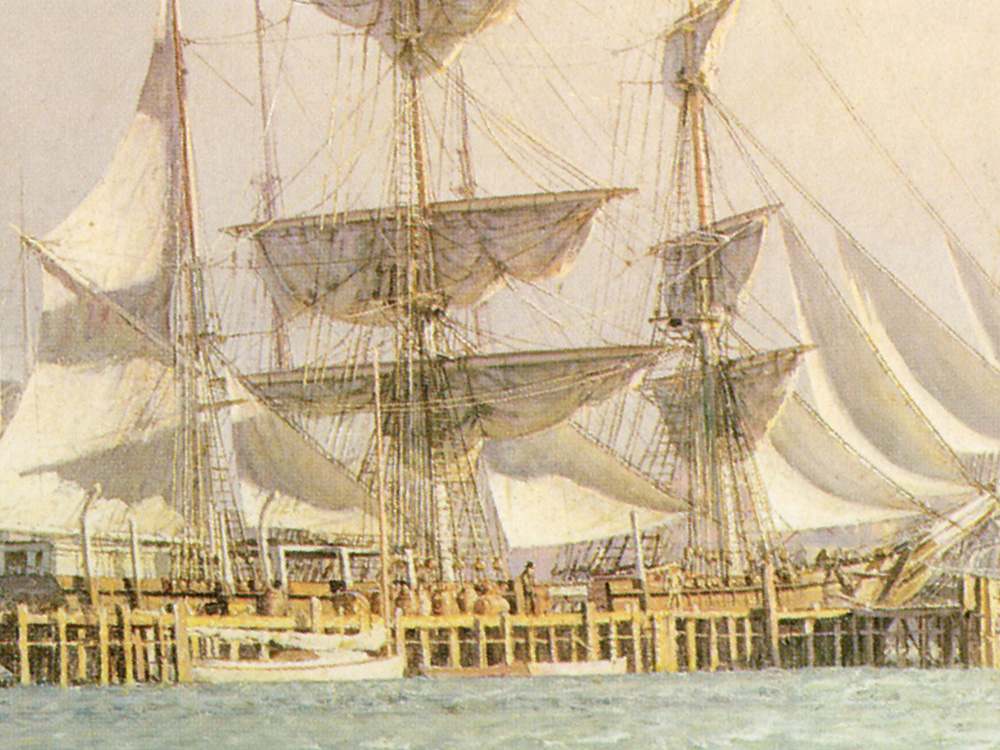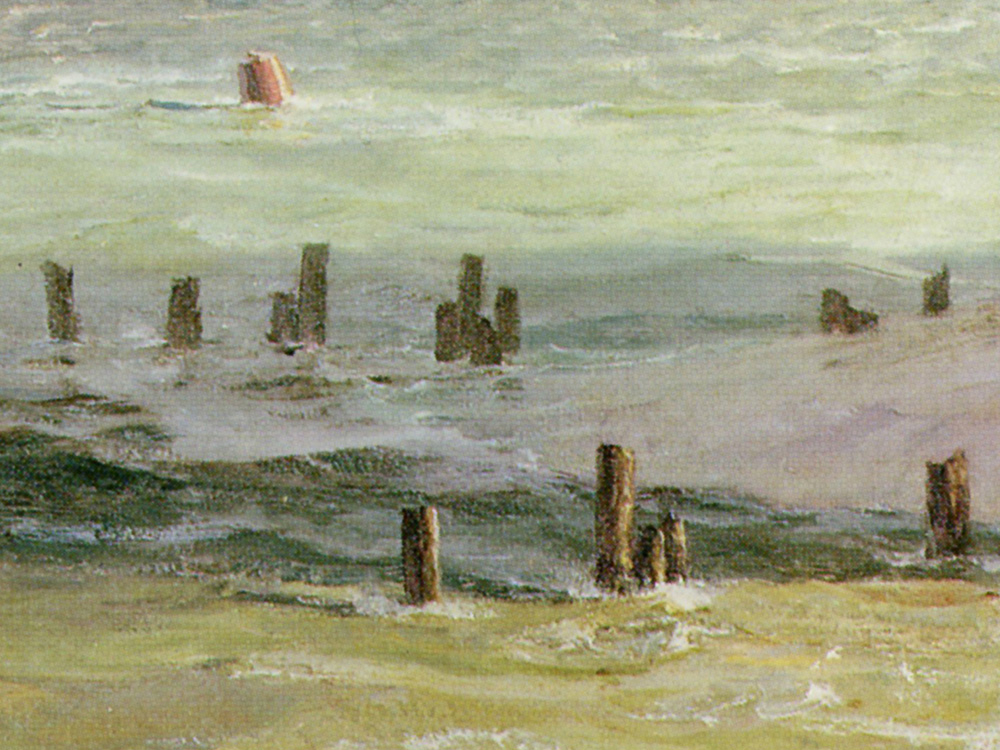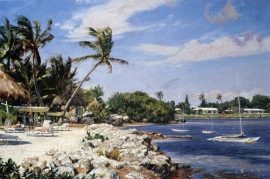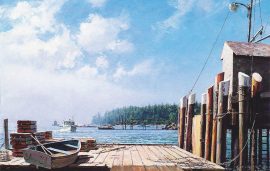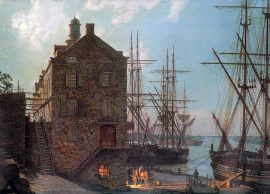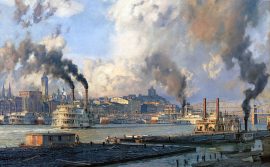Nantucket: The Celebrated Whaling Port in 1835
$2,000.00
Nantucket Island, just off Cape Cod, nothing more than a large sand dune with hummocks and graveled valleys, was pioneered by Thomas Macy and nine other original proprietors in 1659.
Whaling as an economic opportunity presented itself almost as soon as the first settlers established themselves. As Nantucket was the land closest to the Gulf Stream, right whales would often swim toward the island, where they were hunted by the Indian method. Whaling stations or houses were established on the Nantucket beaches; they were equipped with watchtower, a large, sturdy rowing boat, and a small hut for living. When a whale was sighted by the watchman, a bell was clanged: all the men in the settlement tossed down their farm tools and rushed to the beach. The hunt was on. If the boat pullers and steerers were lucky, the whale would be taken with one or more harpoons. The dead mammal was then towed to shore and the carcass cut into blocks of blubber to be boiled off for oil. The product provided a valuable export for the island colony.
It was not long before the whales sensed inshore danger; they avoided the beaches and began swimming further and further out to sea, but the men gave chase as they designed and launched larger vessels of up to seventy-five tons. When the American Revolution broke out, there were 150 Nantucket whalers at sea, which represented about one-half of all the whale ships in the domestic fishery.
The largest profits from Nantucket whale oil were at first garnered, as might be expected, by the Yankee traders in Boston, but the Nantucket men had a bit of trading sense too, and they soon began landing their oil directly at the Boston market, thereby circumventing the Massachusetts middlemen, or factors. It has been said that the typical Nantucket whaler had a distinct personality, a boldness all his own. This painting shows the port in production during one of its last years as the capital of the whaling vessels hang out their canvases to dry after a rainfall.
Out of stock
| Weight | 6.00 lbs |
|---|---|
| Catalog: | Stobart-096 |
| Artist: | John Stobart |
| Dimensions: | 20" x 34" |
| Edition: | 650 |

